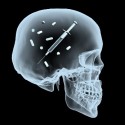Hidden Traumas of the Family Members of an Alcoholic
When a loved one is addicted to alcohol we often like to think that as soon as they get help, complete alcohol treatment and come home everything will just return to normal. It’s nice to believe that things will naturally go back to the way they once were and that alcohol treatment will heal the entire family even though only the alcoholic attended the program. Unfortunately, nothing could be more untrue than this.
Alcohol addiction is more than just an addiction that the individual suffers from. The fact is, the family suffers some hidden traumas as the result of addiction and emotionally and psychologically the entire family system suffers when alcoholism sets in. Long after alcohol treatment has been completed, disturbing emotional and psychological pain continues to haunt the family members and loved ones of the recovering addict. It’s these hidden traumas that must be healed as well in order to facilitate a complete recovery from alcoholism for both the addict and the family of the addict.
Addiction and Trauma Go Hand in Hand
Not only does addiction often lead to trauma, trauma is notable for leading to addiction. The two go hand in hand, like peas in a pod. For the family members who live with someone addicted to alcohol, the trauma that results can nothing short of traumatizing. Loved ones who are addicted to alcohol turn into raging lunatics, become mean, depressed and may even act like they don’t even know the people that matter most to them. While this all seems ok for the addict, for the family members who live with the addict, the emotional disturbance that comes with the addiction is deeply affecting and traumatizing.
What’s worse is that as the traumatic events play out and the addiction continues on in the home, the family members of those addicted to alcohol are often left so traumatized themselves that they too fall victim to addiction. If addiction doesn’t set in there’s a good chance that post-traumatic stress disorder will. Often times, with PTSD comes the need or desire to self-medicate and “cure” the problem. Again, leading the family member of an alcoholic to also become addicted to a drug or substance of choice. Just like addiction causes trauma, the trauma in this case causes the addiction. It’s a roundabout circle that is nothing short of terrible and straining on the entire family system.
Help for Families
Many alcohol treatment centers now provide help for the family members and loved ones of those in treatment. Recognizing the need for the family system to heal in order for the addiction to truly be eliminated, many alcohol treatment centers provide family counseling, therapy and other support opportunities for the loved ones of recovering alcoholics in an effort to help families heal from the traumas that were caused by living with an addict or to heal from the traumas that resulted in the addiction. At this point, what happened first, the trauma or the addiction really doesn’t matter as much as figuring out how the family is going to heal.
If you or someone you know suffers from alcoholism or if you are the family member of an alcoholic, consider alcohol treatment centers for more than just help for the addict. Alcohol treatment centers can help family members and loved ones to heal from the traumatic experiences that alcoholism has caused and begin to heal.

